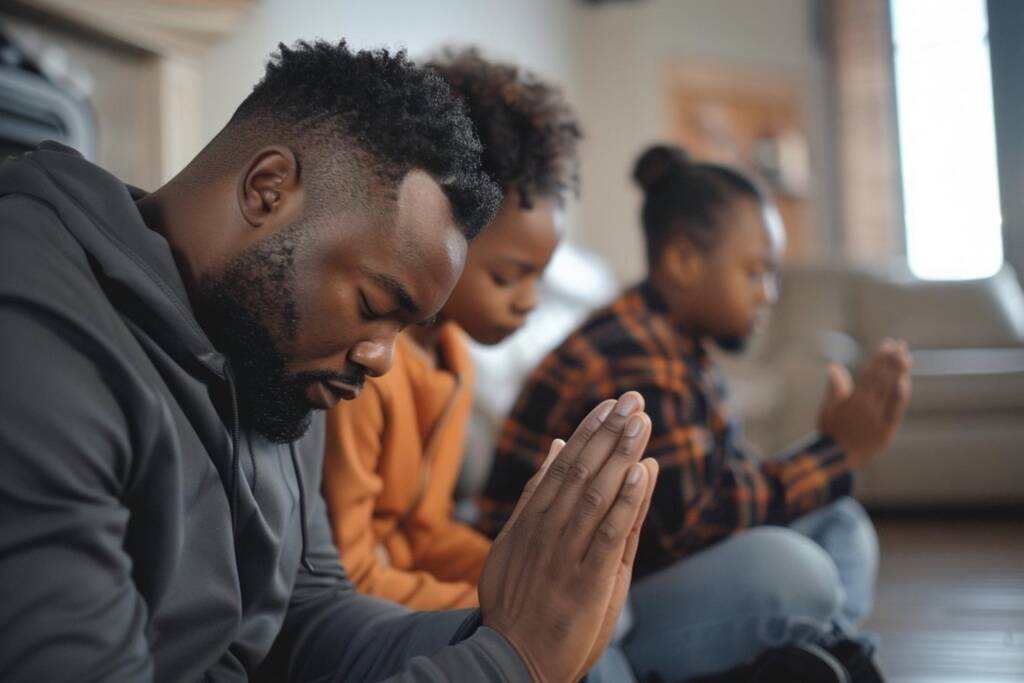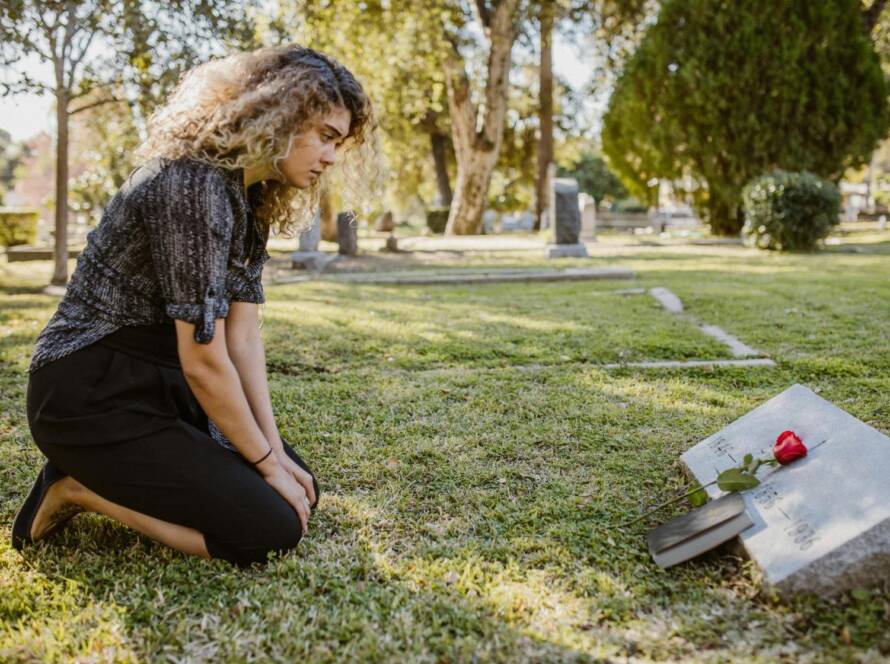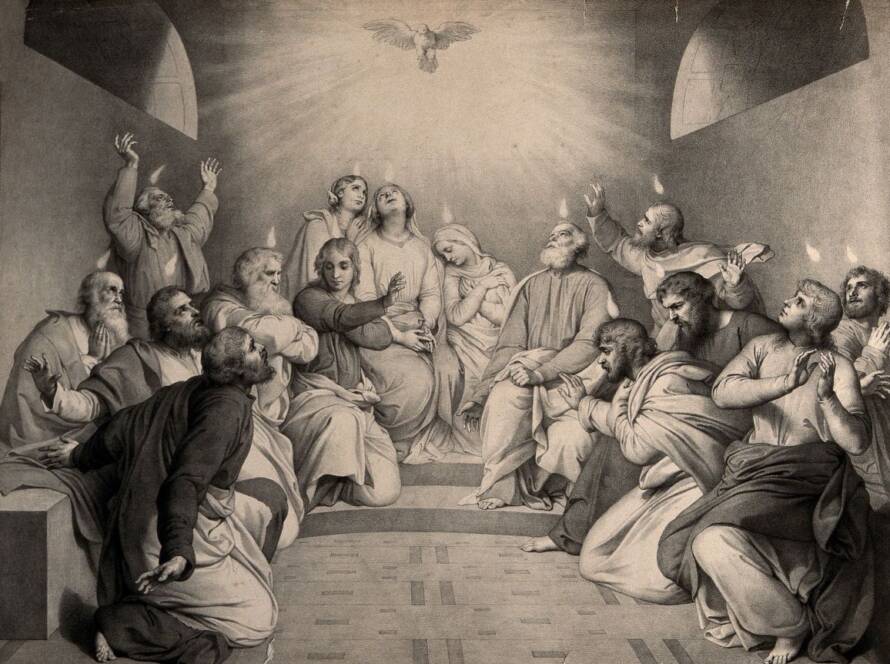Hope & Faith: Finding Our Anchor in God
In a world defined by its shifting sands and uncertain tides, the human heart yearns for an anchor—something firm and true to which it can cling. For the Christian, this anchor is not a thing, but a person: Jesus Christ. He is the very foundation of our hope and the ultimate object of our faith, woven into a tapestry of divine love by our Holy Father and sustained by the comforting presence of the Holy Spirit. This is not merely a belief system; it is the breathtaking narrative of a life lived in unbreakable connection with the divine.

Hope: The Anchor in the Storm
Hope is the joyful and confident expectation of what God has promised and what Christ has already accomplished. It is not a passive wish, but a profound certainty rooted in the unwavering love of God the Father, a love so immense that it transcends all human understanding. This is the love that looked upon a broken world and, in His infinite mercy, set a plan into motion to redeem it.
As the apostle Paul wrote in his letter to the Romans: “But God shows his love for us in that while we were still sinners, Christ died for us” (Romans 5:8, ESV). This promise is the very heartbeat of our hope—that we are not abandoned, but are loved with an everlasting love that saw our need and sacrificed everything to meet it. It is a hope made real in Jesus, who promised, “I am with you always, to the end of the age” (Matthew 28:20, ESV).
Faith: The Conviction of Things Unseen
If hope is our confident expectation, faith is the active trust and firm conviction in the unseen realities of God’s Word. It is the belief that Jesus Christ is who He says He is—the living Word, the promise made flesh, and the ultimate reason for our salvation. The entirety of the Christian life rests on this foundational faith in the person and work of Jesus—His flawless life, His atoning death on the cross, and His glorious resurrection.
He did what we could never do: He defeated sin and death, offering us a path to eternal life and a restored relationship with God. As the author of Hebrews so beautifully states, “Now faith is the assurance of things hoped for, the conviction of things not seen” (Hebrews 11:1, ESV).

The Sustainer: The Indwelling Holy Spirit
Our relationship with God does not end with Jesus’ ascension. The Father, through the Son, gave us a divine helper: the Holy Spirit. The Spirit is God’s constant, abiding presence within us, the very power that raises us from spiritual death to life. He is our comforter, our guide, and the one who empowers us to live a life that honors God.
Jesus promised His disciples, “But the Helper, the Holy Spirit, whom the Father will send in my name, he will teach you all things and bring to your remembrance all that I have said to you” (John 14:26, ESV). It is the Holy Spirit who convicts us of sin, illuminates the Scriptures for us, and bears witness to our hearts that we are children of God.
He is the active, dynamic force that transforms us from the inside out, helping us to embody the Christian values of love, joy, peace, patience, kindness, goodness, faithfulness, gentleness, and self-control (Galatians 5:22-23).

Strengthening Our Relationship with God
To live a life filled with hope and faith is to actively pursue a deeper relationship with our Creator. This is not a passive existence, but an engaged, intentional one. We can strengthen this bond through several core disciplines:
Prayer: This is simply a conversation with God—a two-way street of honest communication, not just a list of requests. It is a moment to express our gratitude, confess our shortcomings, and listen for His voice. As it is written, “Do not be anxious about anything, but in everything by prayer and supplication with thanksgiving let your requests be made known to God” (Philippians 4:6, ESV).
Bible Study: The Bible is God’s living, breathing Word to us. By immersing ourselves in its pages, we learn who He is, what His will is for our lives, and how we are to live. It is our spiritual nourishment and the primary way we hear from Him.
Fasting: This is a spiritual discipline of denying the flesh to focus on God. By giving up something, whether food, entertainment, or a habit, we create space in our lives to seek Him more intently, sharpening our spiritual senses and drawing closer to His heart.
Fellowship: We are not meant to walk this path alone. Joining a community of believers allows us to encourage one another, learn together, and bear one another’s burdens. As Hebrews 10:24-25 tells us, we should “stir up one another to love and good works, not neglecting to meet together.”
By embracing these disciplines and allowing the Holy Spirit to work within us, we are able to live out the Christian values of grace, forgiveness, humility, and compassion, reflecting the very nature of Christ to a watching world.
A Concluding Hope
Our hope is not a wish, and our faith is not a gamble. They are the twin pillars of a life built on the solid rock of Jesus Christ. As we walk hand-in-hand with the Holy Spirit, guided by the Scriptures and rooted in the unwavering love of our Father, we can face any storm with a peace that surpasses all understanding. Our victory is assured, not because of our own strength, but because of His. And that, in and of itself, is the greatest story ever told.
Here’s a deeply heartfelt and reverent Prayer for Hope and Faith — a prayer that invites Jesus to rekindle the light within, restore confidence in His promises, and strengthen the believer’s walk through every storm.
Lord Jesus, Giver of Life and Light of the World,
When the days feel uncertain and my heart grows weary,
I turn to You — my anchor, my Savior, my steadfast hope.
You are the One who calms the storm,
who speaks peace into chaos,
and whose love never fades away.
Lord, I ask You to fill me with hope.
When doubts arise, let Your truth silence them.
When fear creeps in, remind me that You are near.
When the path ahead seems hidden,
be the lamp that lights my way.
Let Your promises become my confidence,
and Your presence my peace.
Teach me to believe even when I cannot see.
Like Abraham who trusted beyond reason,
like Peter who stepped onto the water,
let my faith rise above the waves of worry and despair.
Help me to cling to You, Jesus —
not to what I feel, but to who You are:
Faithful, Mighty, and True.
Strengthen my heart, Lord, when I am tired of waiting.
Give me courage to trust Your timing,
and patience to see Your plan unfold.
When my prayers seem unanswered,
remind me that You are still working —
behind every curtain, within every season,
turning all things for good.
Renew my faith, O Christ,
that I may walk not by sight but by trust.
Let my hope take root in Your resurrection —
the proof that darkness never has the final word.
Let joy spring up in my spirit,
and let praise rise from my lips again.
You are my living hope, Jesus.
You are the author and finisher of my faith.
With You, I am never forsaken,
never forgotten, never alone.
Wrap me in Your love and breathe new life within me.
May my faith shine like a flame that no storm can quench,
and my hope soar like an eagle in Your endless sky.
In Your holy name, I pray — Amen.

Bible Study: Hope & Faith – Finding Our Anchor in God
Opening Prayer:
Heavenly Father, as we gather to study Your Word, we ask that You open our hearts and minds. Through Your Holy Spirit, guide us into a deeper understanding of the hope and faith we have in Jesus Christ, our anchor. May this time draw us closer to You and strengthen us for the days ahead. In Jesus’ name, Amen.
Icebreaker: The Anchor Metaphor
(10 minutes)
The article calls Jesus our “anchor.” What does an anchor do for a ship?
In your own life, what are some of the “shifting sands and uncertain tides” that you face? (e.g., stress, fear, change, grief, cultural pressures)
What are some things people often try to use as an “anchor” instead of God?
Key Verse: Romans 5:8 (ESV) – “But God shows his love for us in that while we were still sinners, Christ died for us.”
Supporting Verse: Matthew 28:20b – “…I am with you always, to the end of the age.”
Discussion Questions:
The article defines hope not as a “passive wish” but as a “joyful and confident expectation.” What is the difference between these two ideas?
Read Romans 5:8. How does this verse prove that God’s love is the foundation of our hope? What does it tell us about the nature of His love?
According to the article and Matthew 28:20, what is the specific promise that forms the “heartbeat of our hope”?
Personal Reflection: Share a time when the hope of God’s presence, not just a positive outcome, sustained you through a difficult situation.
Key Verse: Hebrews 11:1 (ESV) – “Now faith is the assurance of things hoped for, the conviction of things not seen.”
Supporting Concept: Faith is trust in the person and work of Jesus—His life, death, and resurrection.
Discussion Questions:
Hebrews 11:1 connects faith and hope. How would you explain this relationship in your own words?
The article says faith is “active trust.” If hope is the expectation of God’s promises, what is the action of faith? (Hint: See James 2:17)
Why is it crucial that our faith is placed in the finished work of Jesus (what He has already done) and not just in what we want Him to do for us in the future?
Personal Reflection: What is one “unseen reality” of God’s Kingdom (e.g., His love, forgiveness, sovereignty) that you are choosing to have conviction about right now?
Key Verse: John 14:26 (ESV) – “But the Helper, the Holy Spirit, whom the Father will send in my name, he will teach you all things and bring to your remembrance all that I have said to you.”
Supporting Verse: Galatians 5:22-23
Discussion Questions:
The article calls the Holy Spirit our “divine helper.” Based on John 14:26, what are some of the specific roles the Holy Spirit plays in our lives?
How does the indwelling Holy Spirit make our relationship with God different from simply following a set of rules or beliefs?
Read Galatians 5:22-23. These are called the “fruit of the Spirit.” How does the Spirit’s work in producing this fruit help us to “embody Christian values” as the article states?
Personal Reflection: Which fruit of the Spirit do you need the Helper to cultivate in your life most right now?
Key Verses: Philippians 4:6, Hebrews 10:24-25
The article lists four disciplines to strengthen our relationship with God: Prayer, Bible Study, Fasting, and Fellowship.
Discussion Questions:
Prayer (Phil. 4:6): The article calls prayer a “two-way street.” How can we practice listening to God in prayer, not just talking?
Bible Study: Why is reading the Bible essential for growing both our hope and our faith? What happens if we try to have faith without it?
Fellowship (Heb. 10:24-25): How does being in community with other believers “stir [us] up to love and good works”? Share an example.
Fasting: This is often the most neglected discipline. Why do you think “denying the flesh” can help us “sharpen our spiritual senses”?
Personal Reflection: Which of these four disciplines do you feel most drawn to focus on this week? What is one practical step you can take?
Application & Closing
Key Verse: Matthew 7:24-25 (The parable of the wise man who built his house on the rock)
Final Reflection:
The article concludes: “Our hope is not a wish, and our faith is not a gamble. They are the twin pillars of a life built on the solid rock of Jesus Christ.”
How does this study change or reinforce your understanding of hope and faith?
What does it look like to build your life on the “solid rock” this week amidst your specific challenges?
Commitment:
Write down one key takeaway from this study.
Share one way the group can pray for you as you seek to apply this.
Closing Prayer:
Pray for one another based on the commitments shared. Thank God for being our faithful anchor. Ask for the Holy Spirit’s power to live a life of active faith and confident hope.




